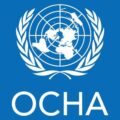Consultant on Area-Based Coordination
Geneva, Switzerland
JOB DETAIL
Result of Service
Tasks and Timeline – Task Estimated time Development of workplan (1 day) Background document review (5 days) Data and information collection: organize and carry out consultations with relevant stakeholders, including focus group calls in up to 5 area-based coordination contexts (30 days) Field missions to up to three area-based coordination contexts (25 days) Data and information analysis (10 days) Inception report (5 days) Draft first report (10 days) Collection and analysis of feedback (10 days) Drafting of second report incorporating feedback received (5 days) Facilitation of meetings to present the report (3 days) Drafting of final report following feedback (6 days) Total days (110 days)
Work Location
Home-based
Expected duration
August-December 2024
Duties and Responsibilities
Output The output of the consultancy will be a report excluding annexes containing the following: A. Overview: This will be a compilation of the different coordination approaches considered as area-based in countries with an HCT detailing their modalities of functioning. · The approaches documented in the overview will include humanitarian area-based coordination (and similar coordination structures and mechanisms) set up by Humanitarian Coordinators (HCs), OCHA, clusters/sectors, donors, or by other entities involved in coordination of humanitarian assistance. · The consultant should also outline other non-humanitarian area-based coordination concepts/models where appropriate (e.g. UNDP’s development model) or ‘settlement’ or ‘neighborhood’ approaches implemented in recovery phases. · In addition to outlining area-based coordination approaches, the overview will document examples of area-based humanitarian planning and, where relevant, non-humanitarian planning at area level. B. Lessons Learned and Implications · Document innovations, lessons learned as well as challenges in the implementation of area-based coordination and area-based planning, including resourcing requirements for coordination positions. · Provide lessons learned on the effectiveness of area-based coordination as an operational coordination modality to respond to the needs of affected people. · Provide detail on how area-based coordination mechanisms may complement, enhance, overlap with, or otherwise impact humanitarian coordination and response at the national and subnational levels (including in clusters, ICCGs, RRMs, HCTs). · Outline the implications for mandates, roles and responsibilities that area-based coordination approaches may have for OCHA, clusters, operational organizations. · Document the potential of area-based coordination to strengthen accountability to affected people, the participation of national and local actors in coordination, as well as accountability more generally. C. Recommendations: Produce recommendations for the Global Cluster Coordination Group, Global Cluster Lead Agencies and other relevant entities regarding the implementation of area-based coordination in the context of an IASC humanitarian response, including on the suitability of area-based approaches in different contexts or situations. D. Definition and Terminology: Based on the above and drawing on existing work done by the IASC and several global clusters, as well as efforts such as the Flagship Initiative, propose a universal definition of area-based coordination for possible endorsement by OPAG as an IASC definition. E. Templates: Gather in an Annex a selection of different Terms of Reference, MoUs, concept notes, data repositories, response plans, cross-sectoral synergies, or other documents pertaining to the set-up of an area-based coordination modality that supports sub-national and national coordination. Methodology · Develop a workplan for the consultancy. · Complete a desk review of key documents. · Conduct interviews and focus group calls with up to 100 key interlocutors · Conduct field visits to three country operations with area-based coordination mechanisms to be agreed by the GCCG. (e.g. Somalia, Afghanistan, Ethiopia, Nigeria, Ukraine, Yemen) Reporting lines: The Consultant will report to OCHA’s System-wide Approaches and Practices Section.
Qualifications/special skills
Required Qualifications and skills: Advanced University degree in one of the following fields: social sciences, public administration, law, public health, nutrition, international relations, business administration or other disciplines related to humanitarian affairs is required. At least ten years of progressively responsible professional work experience at the national and international levels in programme/project development, humanitarian coordination and planning is required. Strong experience in social research, research methodologies, field research, report writing is required. At least 2 years of recent experience (in the last 10 years) working in humanitarian settings in the field is required. First-hand experience of area-based coordination is desirable.
Languages
High degree of fluency in verbal and written English is required. Proficiency in French and/or Arabic is desirable.
Additional Information
Not available.
No Fee
THE UNITED NATIONS DOES NOT CHARGE A FEE AT ANY STAGE OF THE RECRUITMENT PROCESS (APPLICATION, INTERVIEW MEETING, PROCESSING, OR TRAINING). THE UNITED NATIONS DOES NOT CONCERN ITSELF WITH INFORMATION ON APPLICANTS’ BANK ACCOUNTS.


